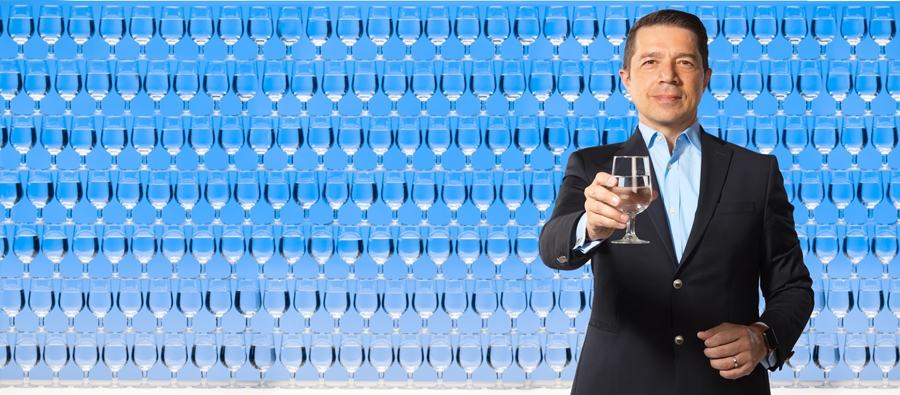
FAYETTEVILLE, Ark. – When it comes to staying hydrated, “just drink when you’re thirsty” has been a rule of thumb for years. Yet a recent study by University of Arkansas researchers may prove that thirst alone is not a reliable indicator of proper hydration levels.
In the study, “Dehydration Impairs Performance, Regardless of Thirst,” published in the journal Medicine and Science in Sports and Exercise, Stavros Kavouras, director of the Hydration Science Lab at the U of A, and his team studied seven cyclists exercising in hot, dry conditions. The cyclists were “blinded” to their hydration status by the use of a nasogastric tube that delivered body-temperature water directly into their stomachs. One group received adequate water through the tube, and the other group did not. In order to suppress their natural thirst, all of the cyclists were given 25 milliliters of water, about five teaspoons, to drink every five minutes.
Even though they didn’t feel thirsty, the cyclists who were not given adequate water through the nasogastric tube performed worse on speed and power output (as measured on stationary bikes). They also had higher core temperatures than the cyclists given adequate water.
Kavouras points out that some researchers believe performance impairment is mainly caused by two factors other than dehydration. The first is the feeling of thirst itself. “You are thirsty, you feel miserable, thus you are not motivating yourself to perform well,” he explains.
The other factor that is commonly cited for imparing physical performance is the belief that dehydration is bad for you. “When you know that you are dehydrated, you might convince yourself to perform badly,” he says. “What is original with our study is we were able to eliminate both of those conditions.”
The small sample size in well controlled studies of this nature is not unusual, Stavros said. “We had enough statistical power that we were able to find statistically significant differences even with just seven subjects.”
Maintaining good hydration by drinking enough water during exercise is critical for optimal performance and body temperature regulation, according to Kavouras. Since different people have different sweating rates during exercise, there is no one-size-fits-all advice for hydration.
“Drinking only to thirst typically leads to significant dehydration, which is associated with exercise performance impairment,” he says. “For optimal performance, competitive athletes should develop their own individualized hydration protocol to best address their fluid needs during exercise.”
About the College of Education and Health Professions: The College of Education and Health Professions offers advanced academic degrees as well as professional development opportunities and learning communities in service to the education and health systems of Arkansas and beyond. The college provides the education and experiences for a range of professional roles, ranging from community mental health counselors to school teachers and leaders. Programs in adult and higher education, along with educational technology and sport management, offer a broad range of options. In addition to education-related opportunities, the college prepares nurses, speech-language pathologists, health educators and administrators, recreation professionals, rehabilitation counselors and human performance researchers.
About the University of Arkansas: The University of Arkansas provides an internationally competitive education for undergraduate and graduate students in more than 200 academic programs. The university contributes new knowledge, economic development, basic and applied research, and creative activity while also providing service to academic and professional disciplines. The Carnegie Foundation classifies the University of Arkansas among only 2 percent of universities in America that have the highest level of research activity. U.S. News & World Report ranks the University of Arkansas among its top American public research universities. Founded in 1871, the University of Arkansas comprises 10 colleges and schools and maintains a low student-to-faculty ratio that promotes personal attention and close mentoring.
Topics
Contacts
Stavros Kavouras, director, Hydration Science Lab
College of Education and Health Professions
479-575-5309, kavouras@uark.edu
DeLani Bartlette, writer
University Relations
479-575-5709,
drbartl@uark.edu